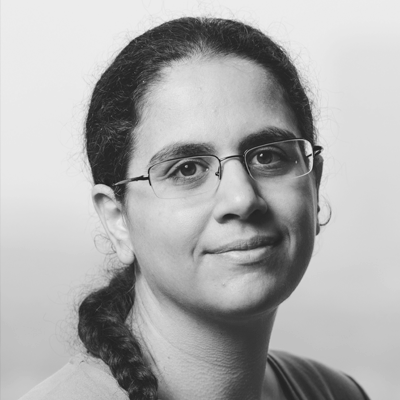By: Kathleen Sandusky
27 Apr, 2023

The Canadian Institute for Advanced Research (CIFAR) and Canada’s three National AI Institutes today announced the appointment of eight outstanding researchers as Canada CIFAR AI Chairs, as well as the first cohort of Chairs to be renewed under the second phase of the Pan-Canadian AI Strategy at CIFAR. The appointments bring the number of Canada-CIFAR AI Chairs to 126, continuing to grow Canada’s robust AI research ecosystem and advancing Canada’s global leadership in AI.
“With the rapid development and deployment of artificial intelligence, it has never been more important to ensure that we are supporting our best and brightest minds, their research programs and work to train the next generation of research leaders. Ongoing funding for Canada CIFAR AI Chairs is advancing research in a range of fundamental and applied AI topics, including drug discovery and machine learning for health, autonomous vehicles, materials discovery, human-AI interaction, natural language processing, and more. On behalf of the Government of Canada, my congratulations to all the well-deserving recipients.”
– The Honourable François-Philippe Champagne, Minister of Innovation, Science and Industry“Canada’s AI ecosystem has grown tremendously since the launch of the Pan-Canadian AI Strategy six years ago. Central to the strategy has been the recruitment and retention of excellent researchers at Canada’s three National AI Institutes, who in turn attract next-generation talent as well as commercial investments in this globally in-demand field. We’re excited about the contributions of these new and renewed Chairs, who will continue to advance Canada’s global leadership in AI, a technology that when used responsibly holds terrific potential to address some of humanity’s greatest challenges.”
– Elissa Strome, Executive Director, Pan-Canadian AI Strategy at CIFAR
Each institute (Amii in Edmonton, Mila in Montreal, and the Vector Institute in Toronto) is welcoming appointments from this diverse new cohort of Chairs, all of whom have been internationally recognized for excellence in their fields of inquiry. The addition of these researchers will help to advance priority areas under the Pan-Canadian AI Strategy at CIFAR including health, sustainable energy and the environment, fundamental science, and the responsible use of AI.
Additionally, CIFAR and the Vector Institute announced that seven Canada CIFAR AI Chairs originally appointed in 2017-18 have had their funding renewed. This is the first cohort to receive five-year renewals through funds allocated in the second phase of the Pan-Canadian AI Strategy, after a rigorous panel review of their accomplishments and leadership. They are: Juan Felipe Carrasquilla Álvarez, Roger Grosse, Sanja Fidler, David Fleet, Daniel Roy, Frank Rudzicz, and Graham Taylor.
The Canada CIFAR AI Chairs program remains a cornerstone of the Pan-Canadian AI Strategy, recruiting the world’s top AI researchers to Canada while retaining existing talent. The prestigious program provides university-affiliated faculty with long-term, dedicated funding to support cutting-edge research programs and help them train the next generation of AI leaders in Canada.
 Bei Jiang
Bei JiangAmii
(University of Alberta)
Jiang’s research aims to advance the field of health data analysis by developing efficient analytics tools, enabling secure data sharing and developing fair machine learning algorithms.
 J. Ross Mitchell
J. Ross Mitchell Amii
(University of Alberta)
Mitchell’s research is focused on healthcare applications of AI and machine learning. In his role as the Inaugural Alberta Health Services Chair in AI in Health, his goal is to provide physicians and medical researchers with Al-powered tools that can help manage the complexity of diagnosis and treatment planning.
 Derek Nowrouzezahrai
Derek NowrouzezahraiMila
(McGill University)
Nowrouzezahrai is devising new mathematical models of visual phenomena and dynamics, solving problems in diverse applications including light transport, fluid dynamics and control, reinforcement and representation learning, robotics, augmented reality, digital manufacturing, computational optics and imaging, and image and geometry processing. His work has been adopted in feature films, video games, autonomous vehicles, amusement parks and consumer products.
 Catherine Régis
Catherine RégisMila
(University of Montréal)
Régis is a specialist in health law and policy, and in innovation law. Most of her work explores how to best regulate AI at the national and international levels. She is especially interested in guiding the development of norms for the health care sector, to ensure that AI is accessible and safe for patients and health care professionals.
 Adriana Romero-Soriano
Adriana Romero-SorianoMila
(McGill University; FAIR at Meta AI)
Romero-Soriano’s research focuses on developing machine learning models which can learn from multi-modal data, reason about conceptual relations, and leverage active and adaptive data acquisition strategies. The goal of her research is to enable interactive and immersive experiences of content creation and reconstruction that work for everyone. Her most recent work intersects generative modeling, active sensing, and responsible AI.
 Gautam Kamath
Gautam KamathVector Institute
(University of Waterloo)
Kamath’s research focuses on considerations related to trustworthy machine learning, particularly concerns of privacy and robustness. He works to develop practical methods for training models that are privacy-preserving, robust, and suitable for use in the real world.
 Renjie Liao
Renjie LiaoVector Institute
(University of British Columbia)
Liao’s research focuses on geometric deep learning, deep generative models, and probabilistic inference. He has developed neural networks for fields of inquiry including molecules and proteins, and advances theoretical understandings of models so they may be applied to practical problems in computer vision, self-driving, and reinforcement learning.
 Sivan Sabato
Sivan SabatoVector Institute
(McMaster University)
Sabato is advancing the field of machine learning, with a focus on interactive machine learning, which makes inferences and predictions from data collected during the learning process. These methods must collect the most useful observations, while avoiding possible biases that can be caused in the process. Sabato addresses this and other challenges using a combination of tools from computer science, statistics and mathematics.
The Pan-Canadian Artificial Intelligence Strategy at CIFAR drives cutting-edge research, trains the next generation of diverse AI leaders, and fosters cross-sectoral collaboration for innovation, commercialization and responsible AI adoption. Our three National AI Institutes – Amii in Edmonton, Mila in Montréal, and the Vector Institute in Toronto – are the vibrant central hubs of Canada’s thriving AI ecosystem. Funded by the Government of Canada, we’re building a dynamic, representative, and rich community of world-leading researchers who are creating transformative, responsible AI solutions for people and the planet.
The Canadian Institute for Advanced Research (CIFAR) is a Canadian-based global research organization that convenes extraordinary minds to address the most important questions facing science and humanity. We are supported by the governments of Canada, Alberta and Quebec, as well as foundations, individuals, corporations and Canadian and international partner organizations.